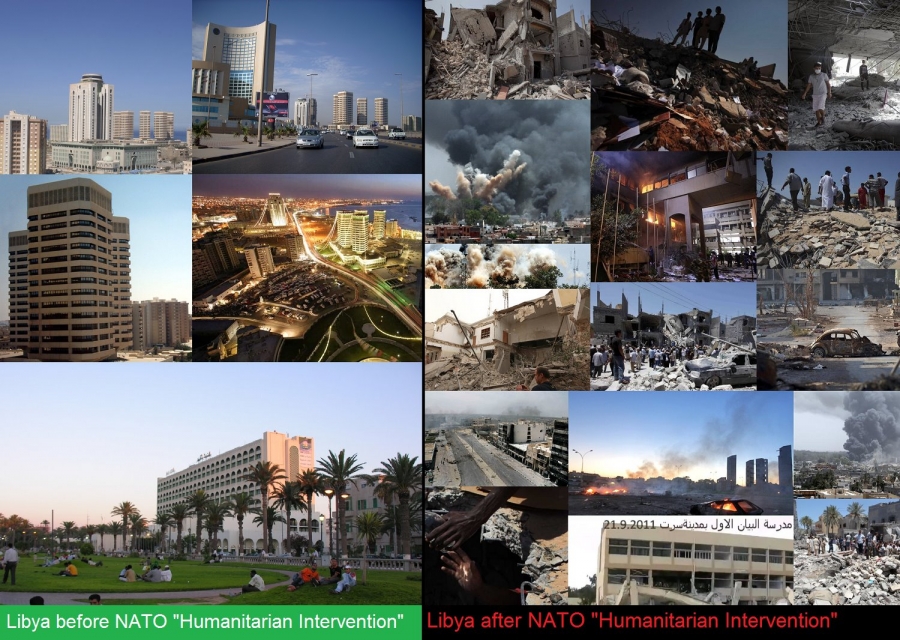It looks like you're using an Ad Blocker.
Please white-list or disable AboveTopSecret.com in your ad-blocking tool.
Thank you.
Some features of ATS will be disabled while you continue to use an ad-blocker.
share:
a reply to: elevenaugust
I fear what this sort of thing brings. Charlie Hebdo has all the makings of a false flag. It even ended in a tremendously large gathering of world political leaders to march against terrorism. @------- That should worry everyone.
We need unification, but it's not against terrorism... unless you mean the true culprits of terrorism.
I fear what this sort of thing brings. Charlie Hebdo has all the makings of a false flag. It even ended in a tremendously large gathering of world political leaders to march against terrorism. @------- That should worry everyone.
We need unification, but it's not against terrorism... unless you mean the true culprits of terrorism.
edit on
12-1-2015 by WCmutant because: (no reason given)
edit on 12-1-2015 by WCmutant because: (no reason given)
originally posted by: Irishhaf
a reply to: Plugin
Did you miss the revolts by the kurds?
Iran/Iraq war
Yom kipper
6 days war
Ww1
Ww 2
Heck go back to the crusade time frame they weren't united even then.
I know it's hip to blame the us for everything from the common cold to the dog pooping on your lawn but try to think sometimes for yourself.
What's the point with going so far back?
I just said before those invasions, with that I don't mean 100 or 1000 years before that, just how it was there at the moment just before the west decided to mess things up over there and taking away leaders where chaos was a result and the rise from IS(is) which came into extensive because of this chaos basically.
And it's not just the US, other western country's also went there.
Just look at this picture for example for what I mean with before & after:

Or in the words from Ron Paul:
www.zerohedge.com...
Beginning with Afghanistan in the 1980s, the US and its allies have deliberately radicalized Muslim fighters in the hopes they would strictly fight those they are told to fight. We learned on 9/11 that sometimes they come back to fight us. The French learned the same thing last week. Will they make better decisions knowing the blowback from such risky foreign policy? It is unlikely because they refuse to consider blowback. They prefer to believe the fantasy that they attack us because they hate our freedoms, or that they cannot stand our free speech.
Perhaps one way to make us all more safe is for the US and its allies to stop supporting these extremists.
Another lesson from the attack is that the surveillance state that has arisen since 9/11 is very good at following, listening to, and harassing the rest of us but is not very good at stopping terrorists. We have learned that the two suspected attackers had long been under the watch of US and French intelligence services. They had reportedly been placed on the US no-fly list and at least one of them had actually been convicted in 2008 of trying to travel to Iraq to fight against the US occupation. According to CNN, the two suspects traveled to Yemen in 2011 to train with al-Qaeda. So they were individuals known to have direct terrorist associations. How many red flags is it necessary to set off before action is taken? How long did US and French intelligence know about them and do nothing, and why?
Foreign policy actions have consequences. The aggressive foreign policies of the United States and its allies in the Middle East have radicalized thousands and have made us less safe. Blowback is real whether some want to recognize it or not. There are no guarantees of security, but only a policy of non-intervention can reduce the risk of another attack.
edit on 13-1-2015 by Plugin because: (no reason given)
Of course it's not all our fault but it sure made things much worse like adding fuel to the fire basically.
edit on 13-1-2015 by Plugin
because: (no reason given)
new topics
-
Trump picks Gov. Kristi Noem to serve as homeland security secretary
2024 Elections: 3 hours ago -
Elon's Starlink Stole The Election For Trump--Leftist Conspiracy Theorists Charge
General Conspiracies: 6 hours ago -
Speaker Johnson Orders Entire Biden Administration to Preserve and Retain All Records - Documents
US Political Madness: 7 hours ago -
Resident Plane enthusiasts needed weird noise
General Chit Chat: 10 hours ago
